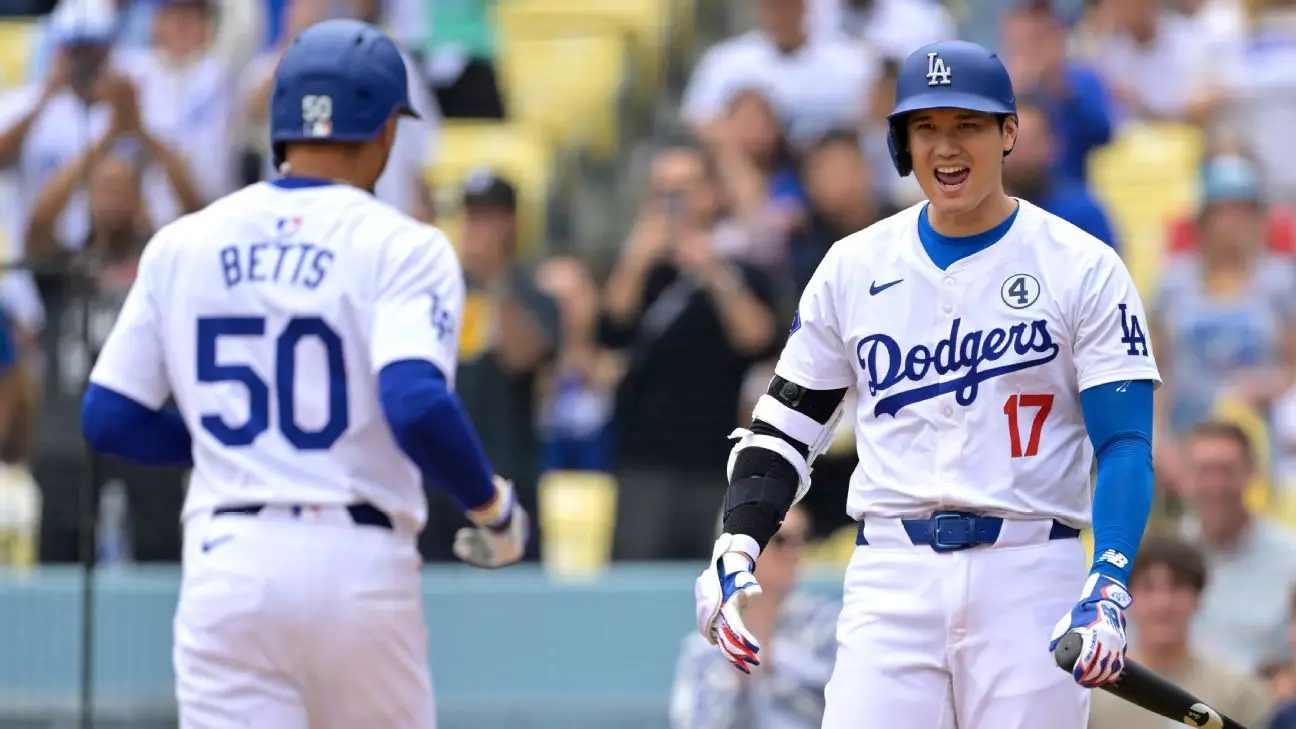Shohei Ohtani, the celebrated Los Angeles Dodgers star, is on the brink of a significant life change as he and his wife, Mamiko Tanaka, prepare to welcome their first child. The news has been met with excitement not only from fans but also from fellow athletes, with teammates like Mookie Betts offering light-hearted and practical advice. Betts, a seasoned father himself, humorously warned Ohtani to “get his sleep now,” highlighting the inevitable sleepless nights that accompany parenthood. Such playful yet candid insights serve to humanize these athletes, reminding us that behind their impressive on-field personas, they are navigating life changes just like the rest of us.
The transition into fatherhood undoubtedly poses its own set of challenges, and Ohtani, who is often burdened with the pressures of being a dual-threat player, faces yet another layer of responsibility. Betts, who has firsthand experience with parenting, shared how he has managed these new roles. This advice not only sheds light on Betts’ character but also emphasizes the strong supportive network within the Dodgers organization. Such camaraderie is essential in professional sports where individuals often find themselves under immense scrutiny.
Alongside Ohtani’s personal developments, another storyline has emerged in the Dodgers’ camp: the arrival of rookie pitcher Roki Sasaki, another talented Japanese player who is already generating buzz. Described as a “phenom,” the anticipation surrounding Sasaki is palpable, especially as he prepares to take the mound in Major League Baseball. Betts shared insights from his initial meeting with the 23-year-old, noticing his reserved nature, which may stem from his unfamiliarity with American culture and language.
The importance of cultural assimilation cannot be overstated in a sport that thrives on diversity. Betts pledged to help Sasaki acclimate by fostering an inclusive environment, employing humor and camaraderie to break the ice. These exchanges highlight the significant role veteran players can play in mentoring rookies, ensuring they not only find success on the field but also feel welcomed within the broader team dynamic. Betts underscored the belief that Sasaki has the potential to be a premier pitcher, given the right support and integration into the league.
Throughout this conversation, Ohtani remains at the forefront of discussions about baseball’s most extraordinary talents. Betts referred to him as “like a god,” reflecting both his on-field prowess and his cult status among fans and players alike in Japan and beyond. It’s clear that Ohtani represents more than just athletic excellence; he serves as an emblem of possibility for many aspiring players.
The intertwining narratives of Ohtani’s impending fatherhood, the arrival of Sasaki, and the collective ethos of support within the Dodgers organization create a rich tapestry of experiences in Major League Baseball. As these events unfold, fans and critics alike will undoubtedly be watching closely not only for how these individuals excel in their professional roles but also how they navigate the complexities of life off the field.


Leave a Reply